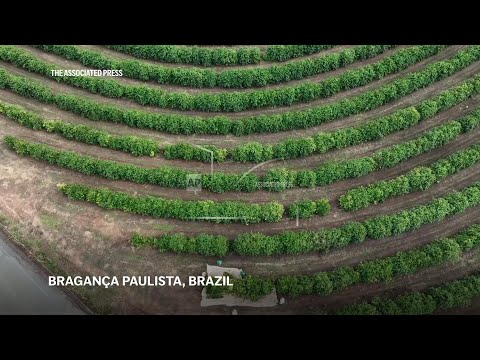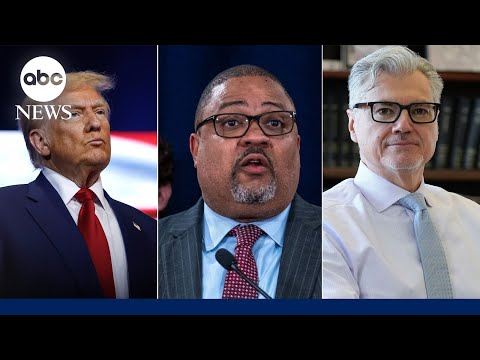(4 Apr 2025)
RESTRICTION SUMMARY:
ASSOCIATED PRESS
Bragança Paulista, Brazil – 4 April 2025
1.Various aerial images of the coffee plantation and workers harvesting coffee at Bocaina Farm ++MUTE++
2. Man driving a tractor carrying rural workers
3. Workers harvesting coffee
4. Coffee producer José Oscar Cintra checking the coffee trees and showing the coffee grains
5. SOUNDBITE (Portuguese) José Oscar Cintra, 78, coffee producer:
++ PARTIALLY OVERLAID BY SHOT 4-5 ++
“Now our friend Trump is provoking a war, in which we all lose. It may be a good thing for Brazil, but we will have to face it."
ASSOCIATED PRESS
Sao Paulo, Brazil – 4 April 2025
6.SOUNDBITE (Portuguese) José Carlos Hausknecht , 57, Partner and director at the consulting firm MBAgro:
"The price (of coffee) will not be affected because it is determined by the international market, based on supply and demand. However, what will happen is that American consumers and industries there, which buy coffee for processing or packaging and selling, will have to pay an additional 10% tariff."
Bragança Paulista, Brazil – 4 April 2025
7. Various of rural workers sifting coffee
8. Aerial of workers harvesting coffee ++MUTE++
STORYLINE:
Brazilian coffee may become more expensive for American consumers after the tariff imposed by U.S. President Donald Trump on the country.
Brazil, the world’s largest coffee exporter, is also the largest supplier of coffee to the U.S., holding 32% of the market, according to U.S. Department of Agriculture (USDA) data from December 2024.
Coffee production capacity in Brazil has decreased in recent years due to rising temperatures and climate change, which had already driven coffee prices up, reaching record highs month after month.
On top of that, American consumers are expected to see even higher coffee prices, as a significant share of the coffee imported into the U.S. comes from Brazil and will now be subject to a 10% tariff imposed by U.S. President Donald Trump.
This taxation, however, could be seen as an opportunity for Brazil, as the country received a minimal tariff compared to others.
Vietnam, for example, the second-largest coffee exporter in the world, faced a 46% tariff.
"So, coffee-exporting countries here in South America—like Brazil, Colombia, and Central America—were actually benefited because they have lower tariffs and will become more competitive in supplying the American market," said José Carlos Hausknecht, director and partner at MBAgro, a Brazilian agribusiness consultancy.
On the other hand, for the coffee producer José Oscar Cintra, there’s no point in having market openings if Brazil doesn’t have the product to supply.
"New markets are opening up. They are looking for Bragança coffee. We send samples all over the world, and they love the coffee. But we don’t have enough to export," said Cintra, still skeptical about the situation.
"Our ‘friend’ (U.S. President Donald) Trump is provoking a war in which we all lose. It may be a good thing for Brazil, but we will have to face it."
AP Video by Maycron Abade, Thiago Mostazo and Andre Penner
===========================================================
Clients are reminded to adhere to all listed restrictions and to check the terms of their licence agreements. For further assistance, please contact the AP Archive on: Tel +44(0)2074827482 Email: info@aparchive.com.
Find out more about AP Archive: http://www.aparchive.com/HowWeWork
Twitter: https://twitter.com/AP_Archive
Facebook: https://www.facebook.com/APArchives
Instagram: https://www.instagram.com/APNews/
You can license this story through AP Archive: http://www.aparchive.com/metadata/youtube/b92cbd76cc15473580bb686c6267b7e8
Author: AP Archive
Go to Source
News post in April 10, 2025, 12:05 am.
Visit Our Sponsor’s:
News Post In – News





